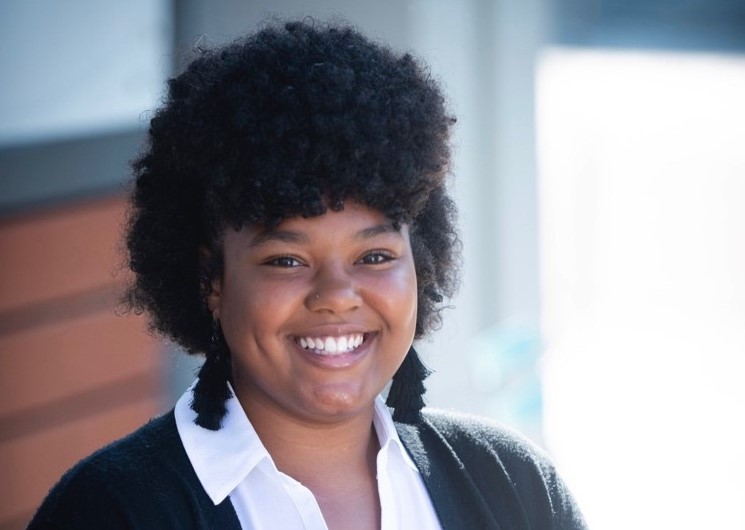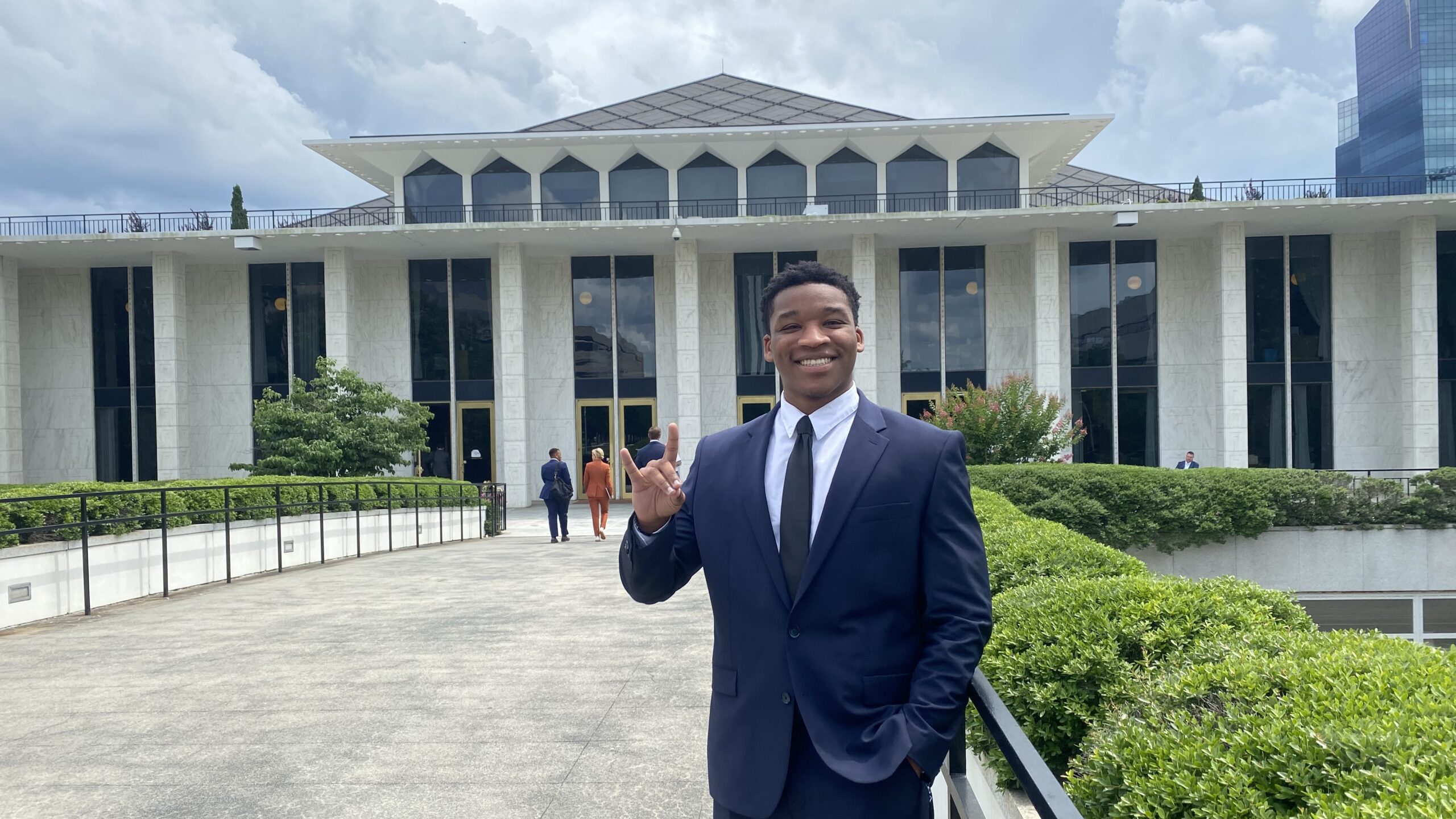Legislative Internship Program: Malasia McClendon

Malasia McClendon was one of only 12 students selected to participate in the 2019 Legislative Internship Program at the North Carolina General Assembly. Now in its 26th session, the program is administered by and includes classes from NC State’s Department of Political Science. The program is open to students from all North Carolina colleges and universities.
Malasia graduated from NC State in 2020 with a major in political science and minors in sociology and Africana studies, and is currently a Fellow/Junior Program Officer at the Z. Smith Reynolds Foundation.
Why did you want to be a legislative intern?
I wanted to be a legislative intern so that I could apply the knowledge I obtained through courses to the real world, and to experience the legislative process first-hand. Additionally, I wanted to explore politics and see if it was a field I might pursue as a career.
What was the most valuable part of this internship program for you?
Relationships. I developed a great working relationship with the Senator for whom I interned. I was invited to work on her campaign for NC Lt. Governor after my internship at the General Assembly ended. The connections I built with other members, staff and interns were valuable and are something that I have been able to utilize as I continue to explore what the future might hold for me long term.
Each legislative intern cohort consists of students from universities all over the state. Did you like that aspect of the program?
Yes, I appreciated this structure and having different perspectives in the classroom. Our intern cohort has stayed connected through Facebook and LinkedIn.
What is your current position and what is a typical day like?
I am a Fellow/Junior Program Officer at the Z. Smith Reynolds Foundation. A typical workday for me varies. My weekly administrative responsibilities don’t change, but I have other responsibilities that are seasonal. During the grant cycles, I support program officers by reviewing grant applications, meeting with non-profit organizations to discuss their proposals, and contribute to team discussions regarding grant cycles and priorities. I also attend collaborative meetings and information sessions, which help me learn more about the issues North Carolinians face and ways in which we can support organizations that provide solutions to those challenges.
What do you enjoy most about your current position?
What I enjoy most about my position is the opportunity to talk with different organizations working in priority areas that intersect and overlap and that are especially significant to me, such as education and democracy. It not only gives me the opportunity to learn about the non-profit and philanthropic sectors, but it also allows me to consider policies that work well and identify those that may need changing.
How did this internship and your degree program at NC State prepare you for your current position?
The legislative internship program prepared me in several ways, specifically in understanding how the non-profit organizations we support influence policies and decision-making, and how changes in government power structures can be influenced through grassroots organizing and other work. The legislative internship program, coupled with my degree at NC State, helped me to narrow in on my passion for influencing community and state level change specifically in terms of diversity and inclusion in regards to race, ethnicity and socioeconomic status. It also helped me gain the knowledge and experience I needed to understand the significance of designing, implementing and changing policies that affect the lives of people around the world daily. NC State, its faculty and staff, and the Legislative Internship Program gave me a jumpstart on my network and the experience that has helped get me to where I am today.
Do you have any advice for current students who are considering applying for this internship program?
The internship experience is what you make it and it is important that you feel empowered to express your professional needs and your career goals so that you can utilize all of the resources and networks that are available to you.


